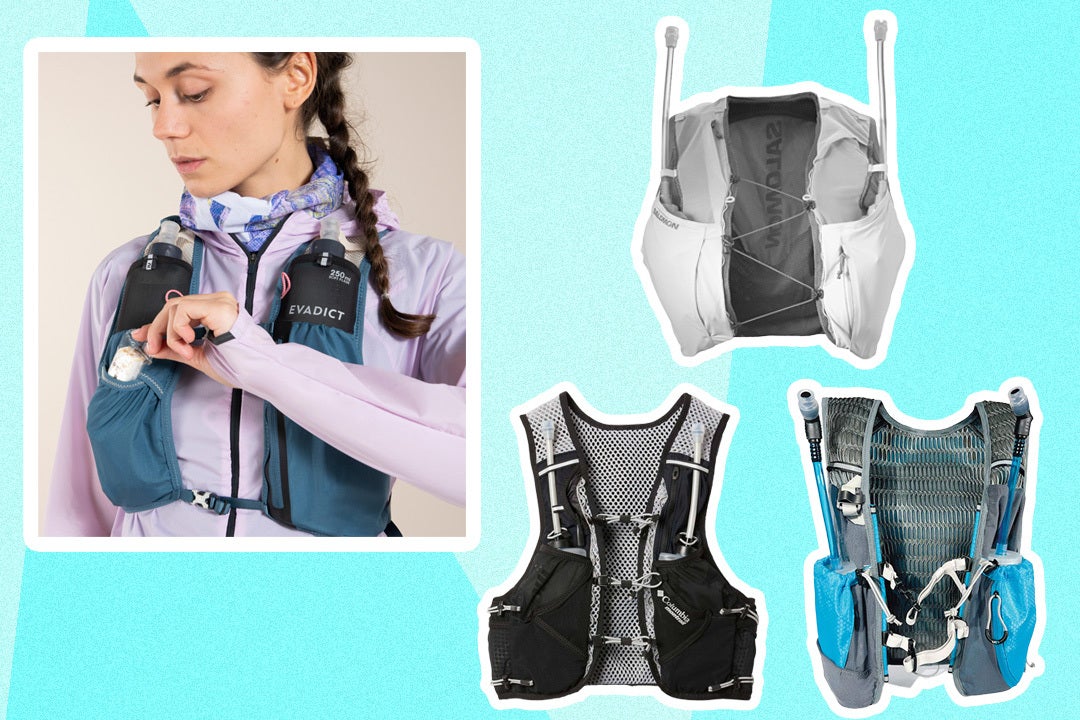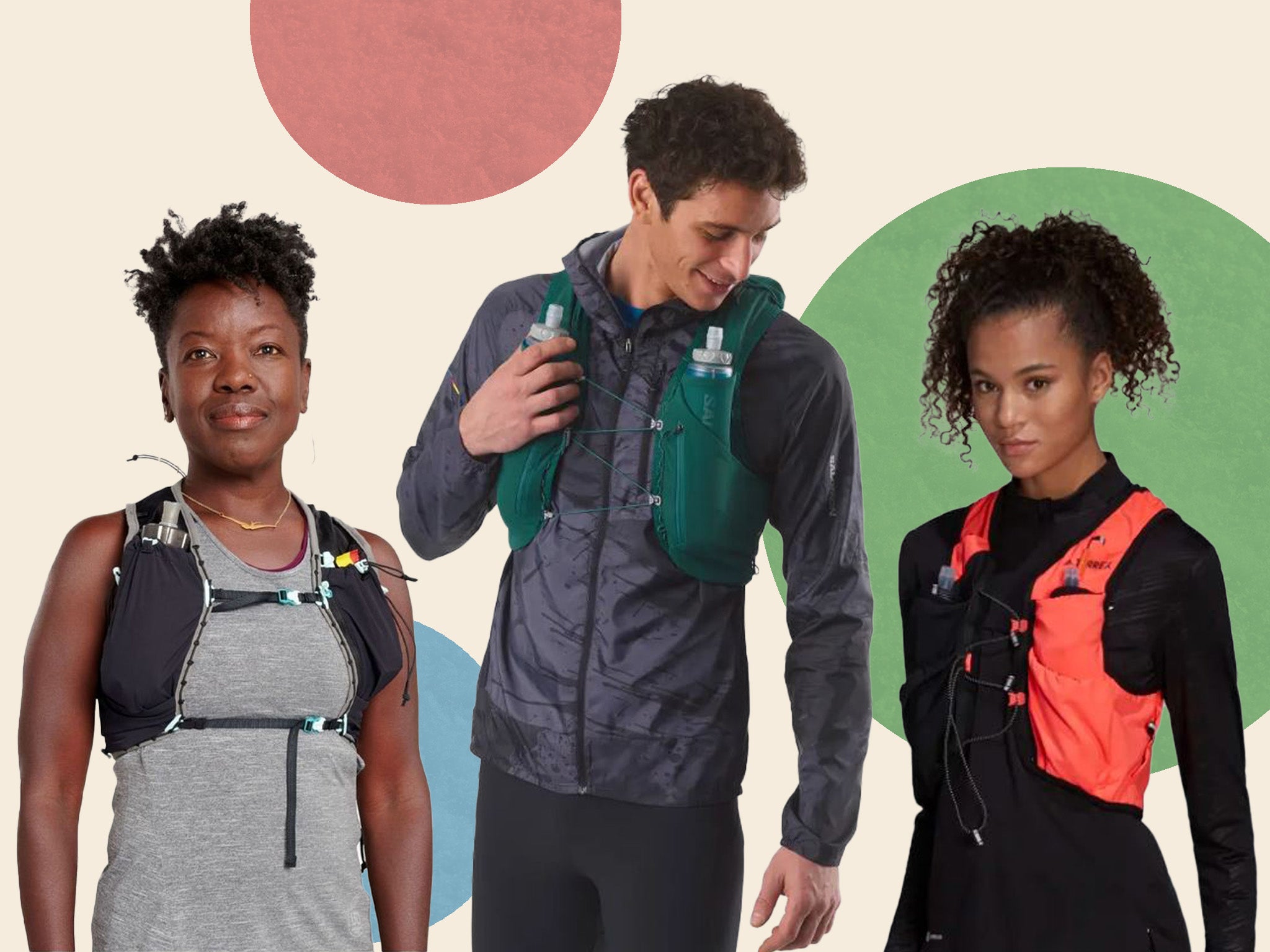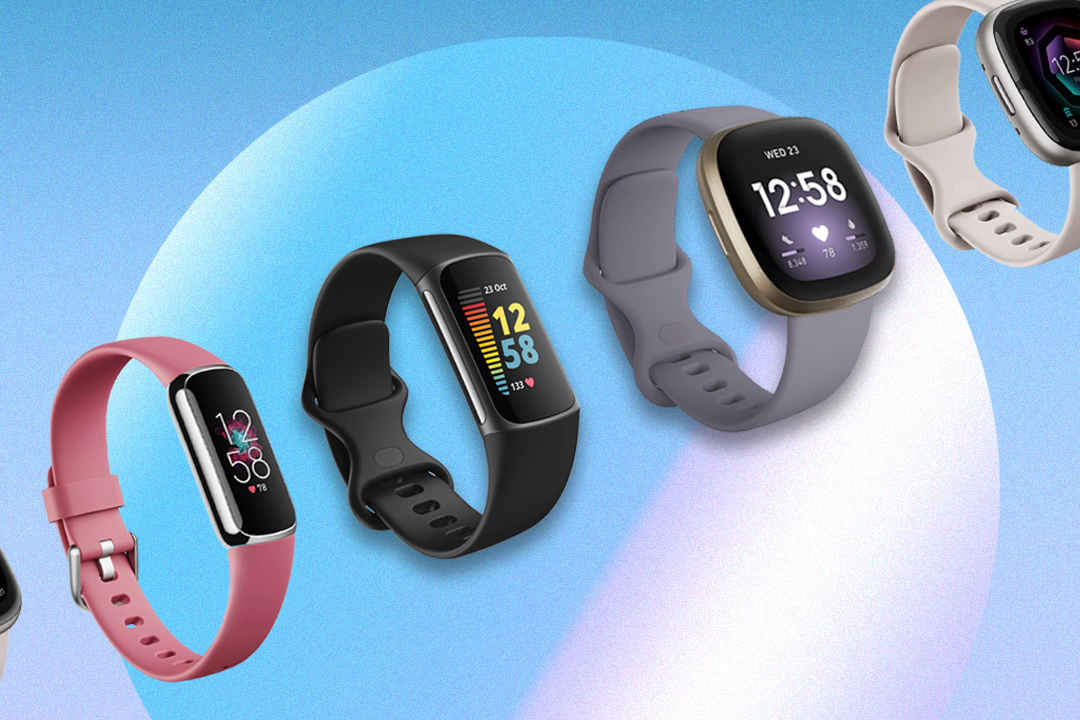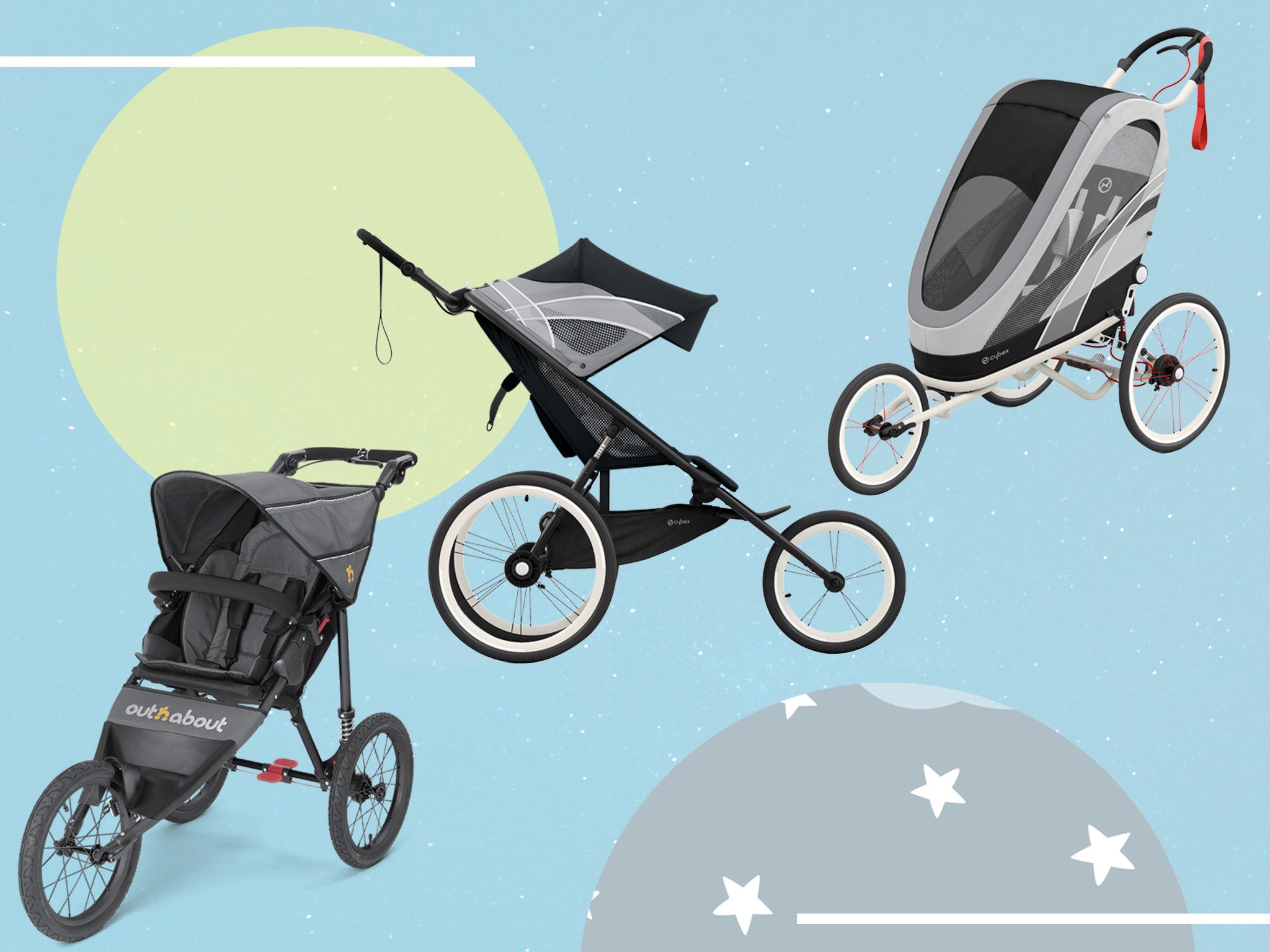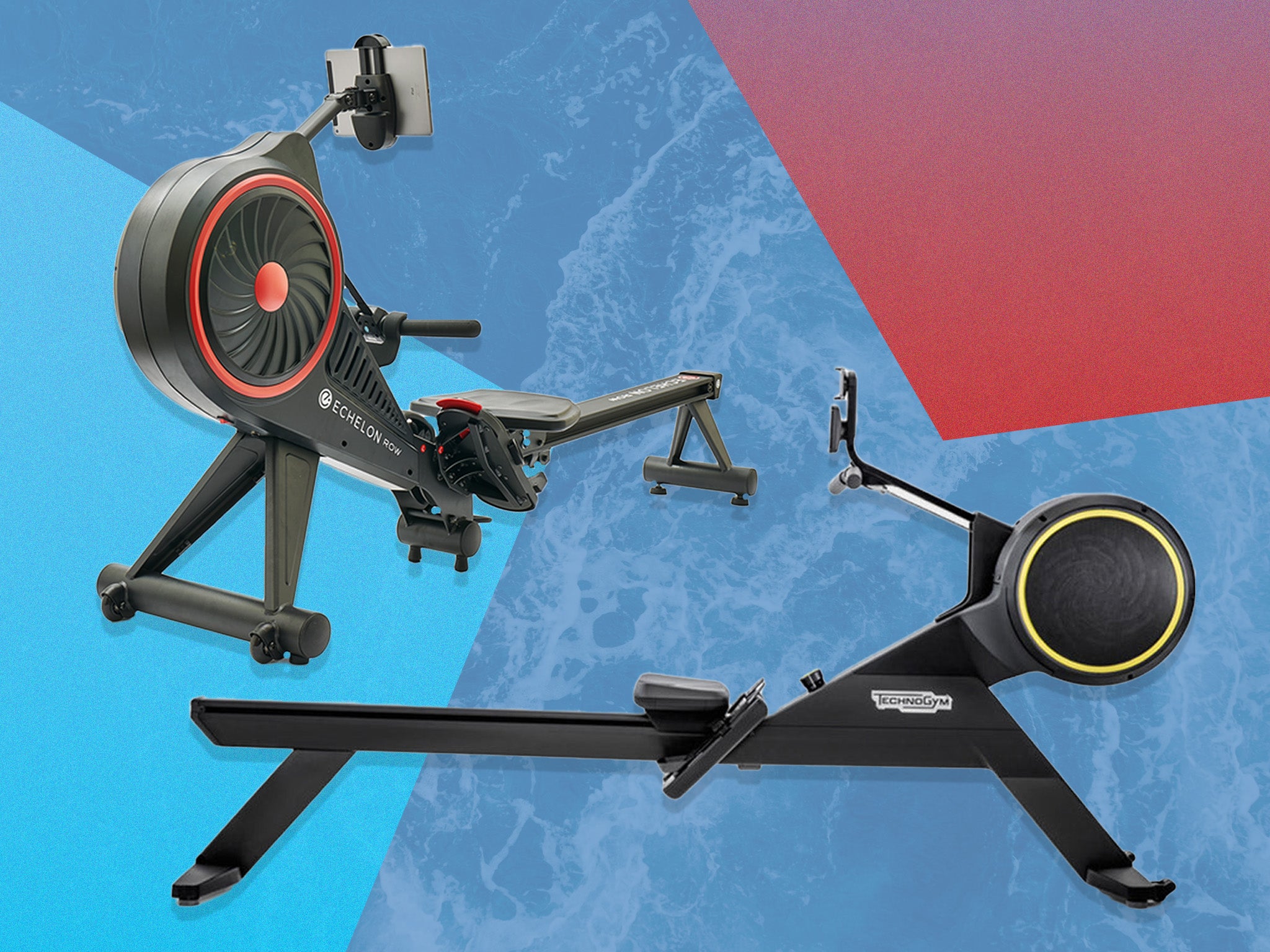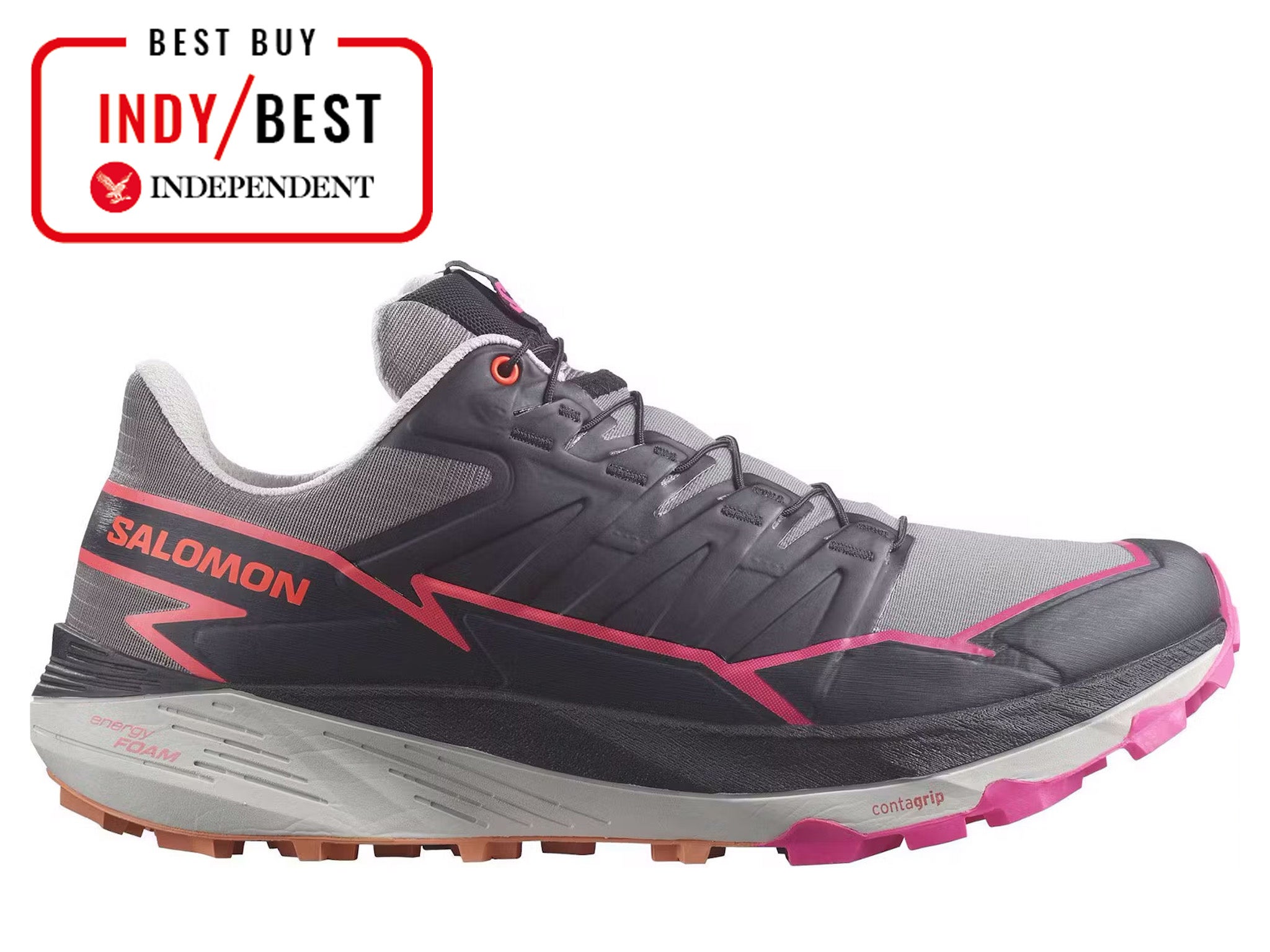
The Independent's journalism is supported by our readers. When you purchase through links on our site, we may earn commission. Why trust us?
8 best men’s trail running shoes for off-road racing and long-distance training
Combine stability, bounce and proper protection with these lace-ups from the likes of Hoka, Nike and more

A good pair of trail runners is your ticket to a more adventurous way of keeping fit. Maybe you’re sick of the toll pounding pavements has taken on your knees. Or perhaps you’re looking for a way to escape busy city streets and enjoy your runs uninterrupted by red lights.
Whatever your reasons, taking to the trails achieves all of the above with a side of fresh air, natural scenery and increased elevation to help hit your fitness goals even quicker. So long as your footwear’s up to the job, of course.
Trail runners differ from conventional road-running shoes in a number of ways. They’ve evolved to cope with the unique demands posed by rough, uneven terrain. Instead of flat soles, they usually feature pronounced “lugs”, which bite into the earth and aid traction on soft ground.
Trail runners also tend to fit closer than road-running shoes. This increases precision and maximises foot control on technical terrain. Some trail runners have additional features like waterproof uppers and toe protection too.
To pick the best trail runners for you, give some thought to your local conditions, terrain and what sort of distance you usually run, then scroll down to find the best options based on these variables.
How we tested
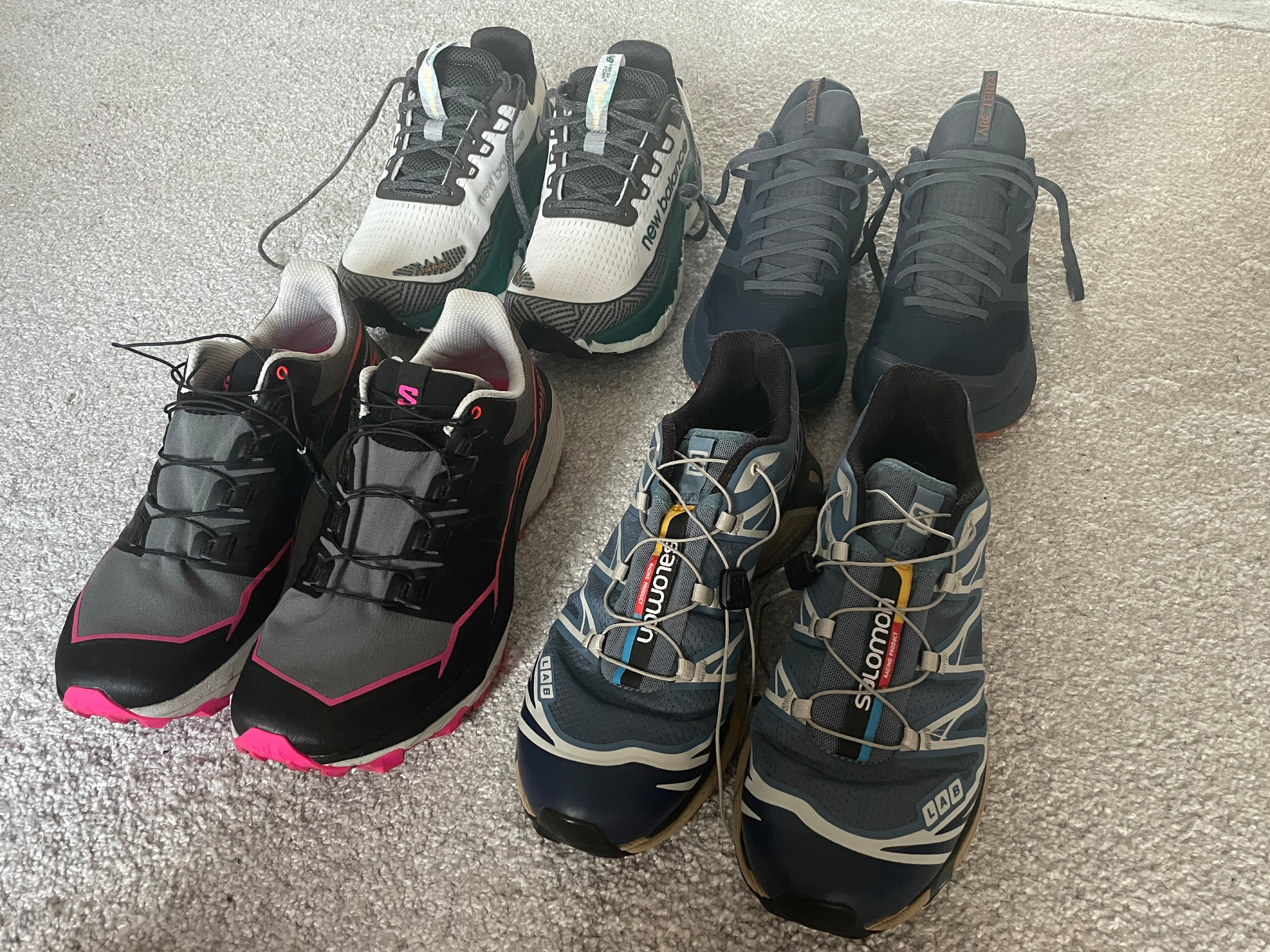
The only real way to test a trail running shoe is to get out there and put some miles on it. So that’s exactly what we did. We logged at least a full week running in each of the shoes featured here – in some cases much more.
The bulk of our testing was done in Northumberland, which is one of the few counties in the UK that offers everything from sandy coastal paths to forest singletrack and rocky mountain trails. The weather is notoriously changeable, with frequent wet and muddy conditions, which allowed us to put Gore-Tex shoes through their paces too.
The best men’s trail running shoes for 2023 are:
- Best men’s trail running shoes overall – Salomon thundercross trail running shoes: £125.96, Alpinetrek.co.uk
- Best budget men’s trail running shoes – Asics trail scout 2 trail running shoes: £39.99, Sportsshoes.com
- Best men’s trail running shoes for comfort – New Balance more trail V3 trail running shoes: £134.99, Wiggle.com
- Best waterproof trail running shoes – Arc’teryx norvan LD 3 trail running shoes: £150, Arcteryx.com
- Best men’s road-to-trail running shoes – Nike pegasus trail 4 Gore-Tex mens trail running shoes: £110, Sportsdirect.com
Salomon thundercross trail running shoes

- Best: Overall
- Heel-toe drop: 4mm
- Lug depth: 5mm
- Terrain: Rocky, muddy
- Waterproof: No
- Why we love it
- Generously cushioned midsole
- Excellent mix of springy responsiveness and shock absorption
- Take note
- Regular version is not waterproof
The thundercross is the latest and greatest trail shoe from French alpine sports brand Salomon. Featuring a generously cushioned midsole, combined with big 5mm lugs for grip on rocky, muddy terrain, it bridges the gap between Salomon’s lightweight trail shoes and its more aggressive, mud-orientated designs, like those in the signature speedcross line.
The EVA-based energy foam midsole provides an excellent mix of springy responsiveness and shock absorption without hampering stability. Yes, it has a lot of cushioning compared to other shoes in the Salomon fleet, but rarely does it feel unbalanced, and when the trail turns muddy, it really comes into its own.
The version we tested wasn’t waterproof, but there is a Gore-Tex option available for an additional £20 if you often run in wet or cold conditions. That said, the regular version does an excellent job of letting water out, which means the shoe never gets completely waterlogged and squelchy, even in heavy rain. A good choice if you’re looking for something to take you on long runs on less than favourable terrain, but in comfort.
Asics trail scout 2 trail running shoes
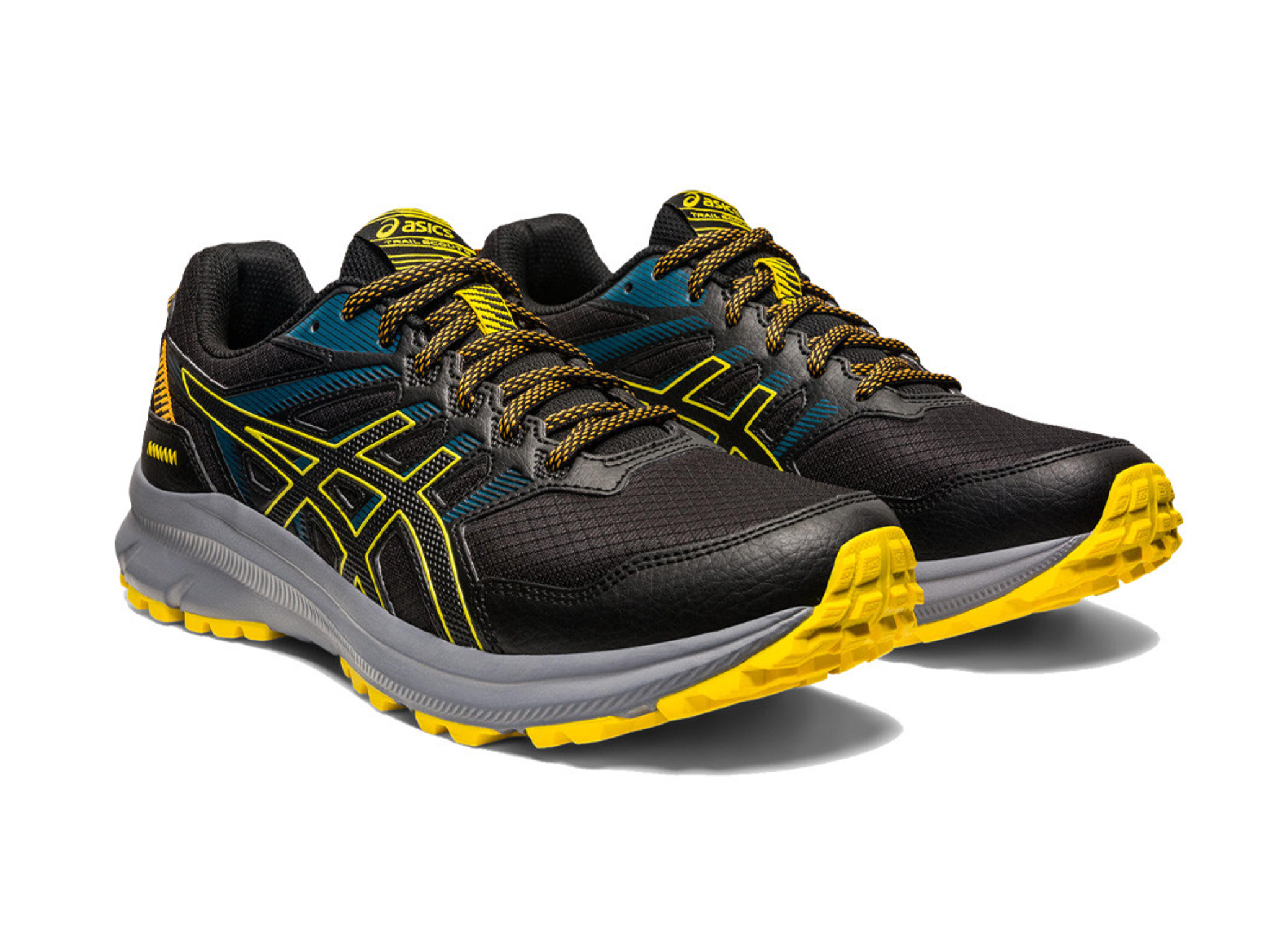
- Best: Budget buy
- Heel-toe drop: 10mm
- Lug depth: 4mm
- Terrain: Mixed
- Waterproof: No
- Why we love it
- Affordable
- Good heel support
- Take note
- Minimal padding
- Limited breathability
Good running shoes are rarely cheap, but this highly capable trail runner from Asics proves you don’t have to dig too deep into your pockets to get something grippy, responsive and durable. At just £39.99, the trail scout 2 is very reasonably priced, making off-road running more accessible to those on modest budgets. But don’t be fooled by the price, because although cheap, this shoe handles well on mixed terrain, provides plenty of traction and holds the heel in place beautifully.
Don’t go in expecting a premium experience, as you’ll be disappointed. There’s no fancy foam in the midsole, nor is there much in the way of padding in the upper (ridiculously cushy tongue aside). However, if you’re looking for support, stability and an outsole that won’t slip when the tarmac turns to trail, all without breaking the bank, this shoe is for you.
One of our favourite features is the durability of the uppers. The material is reassuringly thick and incredibly abrasion-resistant, but this does come at the expense of breathability. For this reason, we found that the trail scout 2 performs best in cooler conditions. It’s also worth noting that the shoe runs fairly narrow, so if you have a broad foot, you may want to consider sizing up.
Hoka One One zinal 2 trail running shoe
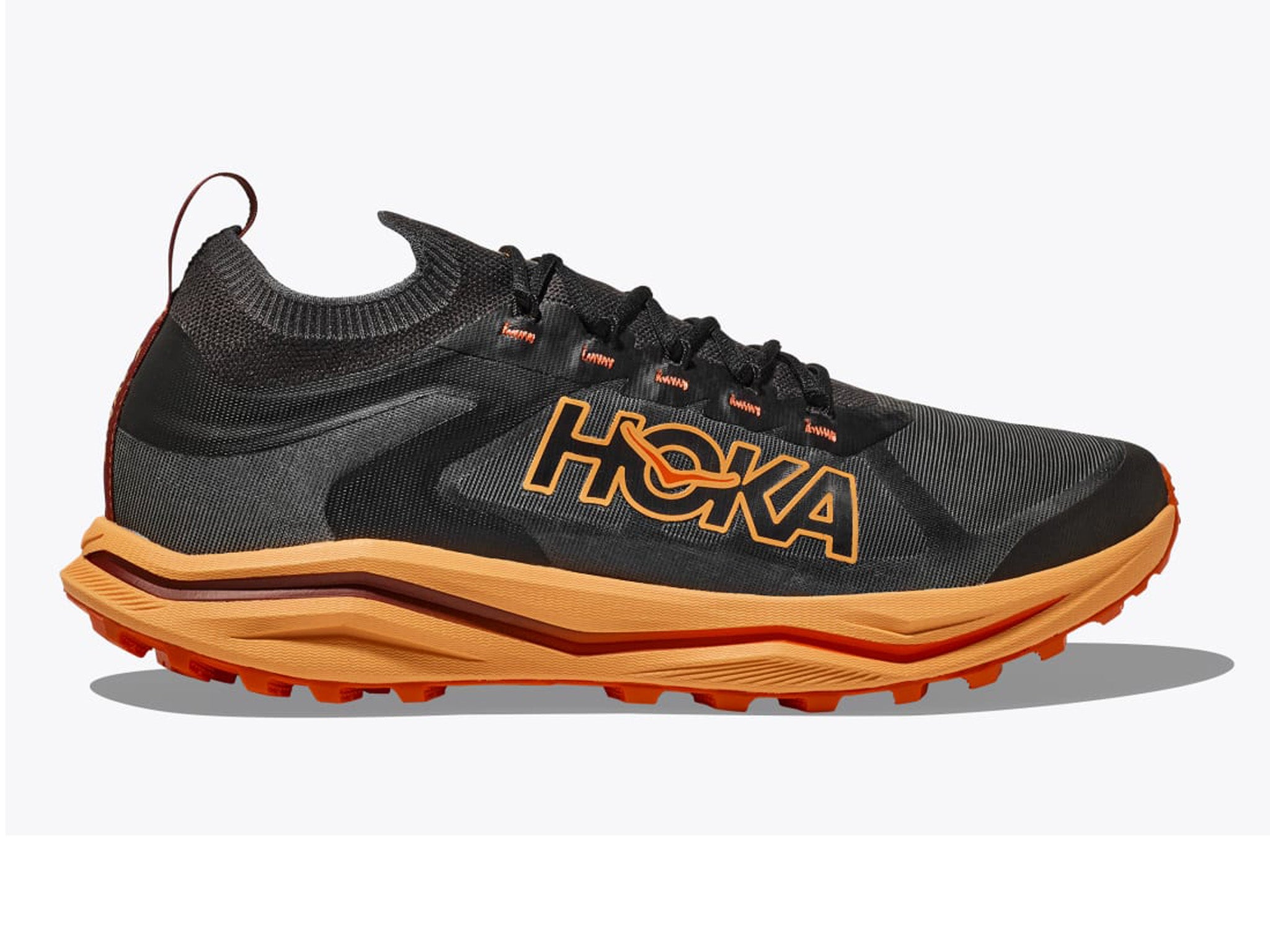
- Best: For speed
- Heel-toe drop: 5mm
- Lug depth: 5mm
- Terrain: Rocky, muddy
- Waterproof: No
- Why we love it
- Low-profile design
- Keep feet locked in place
- Take note
- Very narrow fit
French running brand Hoka One One is known for its generously cushioned, maximalist shoes. The zinal 2’s low-profile design brings the foot closer to the ground, improving feel, control and stability when running on technical ground at speed. Hoka describes it as “a veritable paring knife for the trail”, and we can certainly see where it’s coming from.
The zinal 2 has a sock-like design with a stretchy knitted collar and a tight fit. The collar is great for keeping the foot locked in place, and it has the added benefit of making sure no trail debris finds its way into the shoe during runs. It’s intentionally close-fitting for precision, but we’d still advise going up a half size if you’re usually in between sizes, as we found it to be extremely narrow.
New Balance more trail V3 trail running shoe
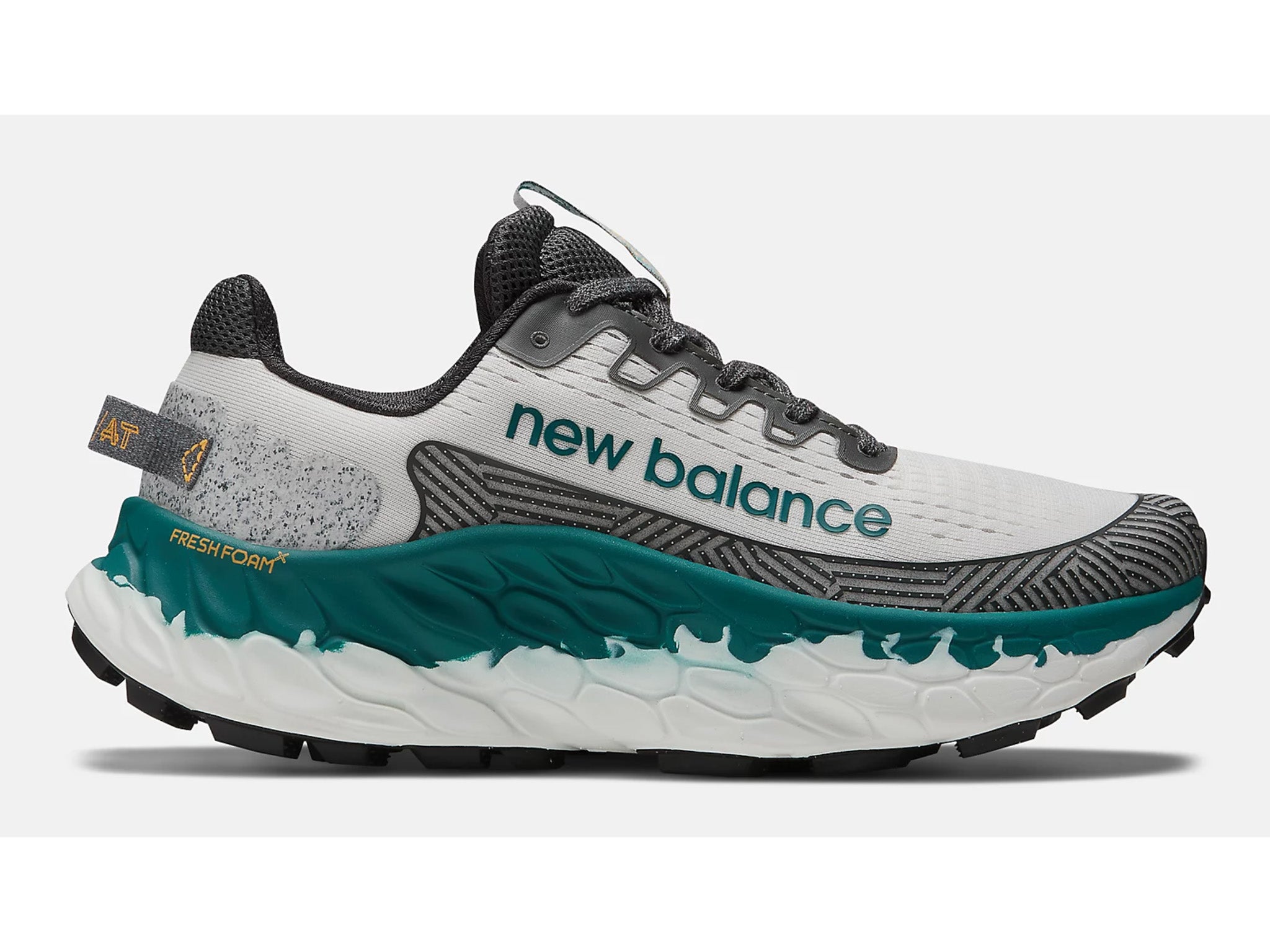
- Best: For comfort
- Heel-toe drop: 4mm
- Lug depth: 5mm
- Terrain: Mixed
- Waterproof: No
- Why we love it
- Well cushioned
- Take note
- Bulky
If you’re looking for a slim, nimble shoe for hoovering up PBs and tearing up race days, the New Balance more trail V3 probably isn’t it. But what this trail runner lacks in agility it more than compensates for in pure comfort.
The first thing we noticed about this shoe was the width. It has a whopping 40mm stack height (good news for vertically challenged runners), but thanks to the enormity of the Vibram soles, it feels incredibly stable underfoot. All of that foam coupled with the large ground-contact area make this one of the cushiest options on the market. Not the lightest, not the fastest, but definitely the most comfortable. It’s the running equivalent of a fat-tyre bike.
Arc’teryx norvan LD 3
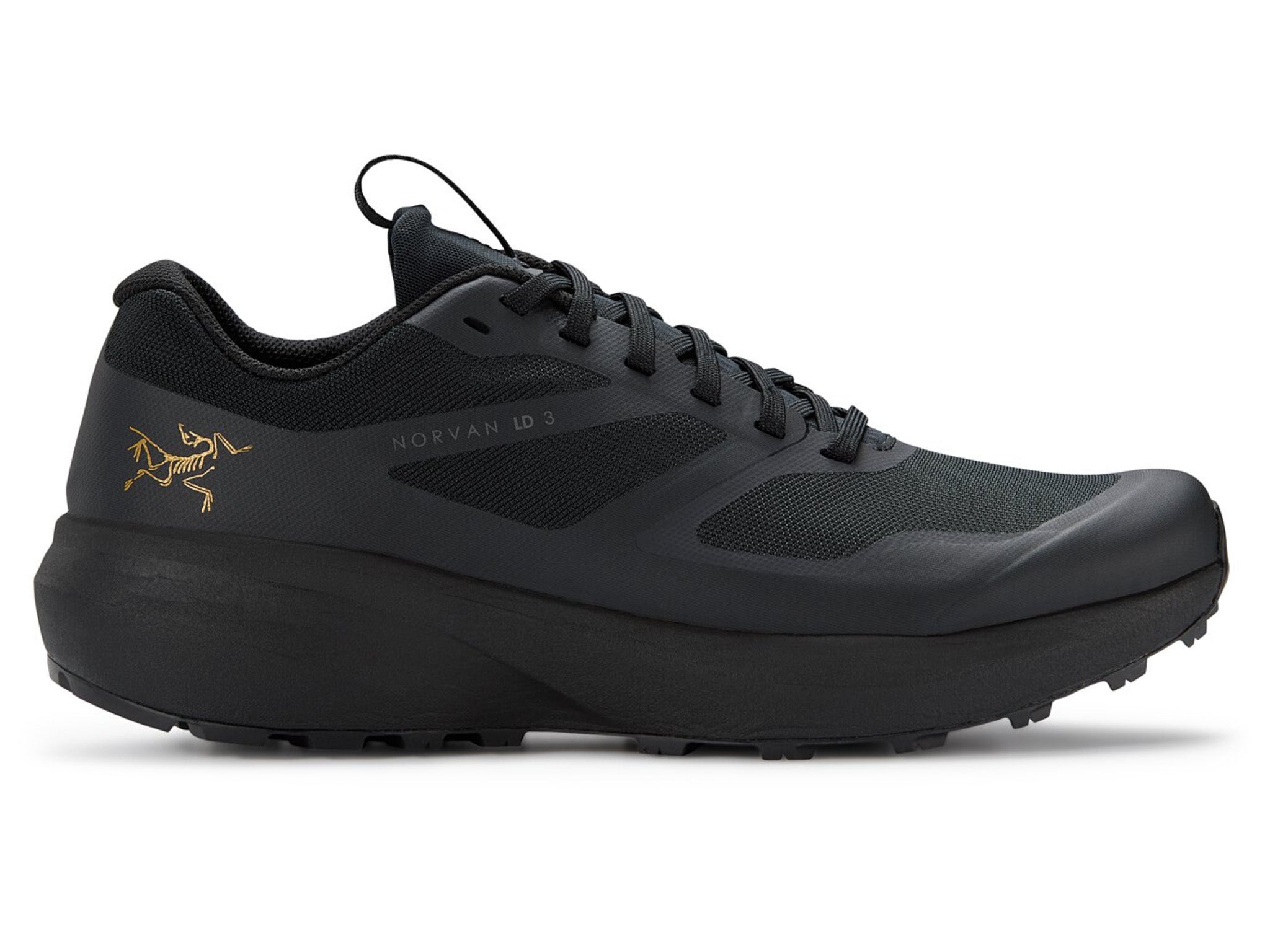
- Best: Waterproof shoes
- Heel-toe drop: 6mm
- Lug depth: 4mm
- Terrain: Rocky, dirt
- Waterproof: Yes
- Why we love it
- Built in Gore-Tex membrane to keep feet dry
- Easy to clean
- Take note
- Not as cushioned as we’d like or a longer run
Canadian outdoor brand Arc’teryx is known for making some of the best alpine sports equipment in the world. Basically, if it happens on a mountain, Arc’teryx makes great gear for doing it, and trail running is no exception.
This recently updated version of the label’s signature trail shoe is geared towards big distances and features a built-in Gore-Tex membrane to keep feet dry (within reason). It’s a sleek, streamlined-looking shoe with a durable mesh and rubber construction that’s hardwearing and extremely easy to clean. It features a maximum stack of 29mm and a drop of 6mm.
We found the norvan LD 3 to be light, comfortable and fast. The “LD” stands for “long distance”, but we felt the foam to be relatively firm. This is great for everyday trail runs, but we’d probably still reach for something slightly cushier if we were heading for a particularly lengthy training run. Go up a half size for the best fit.
Salomon XT-6
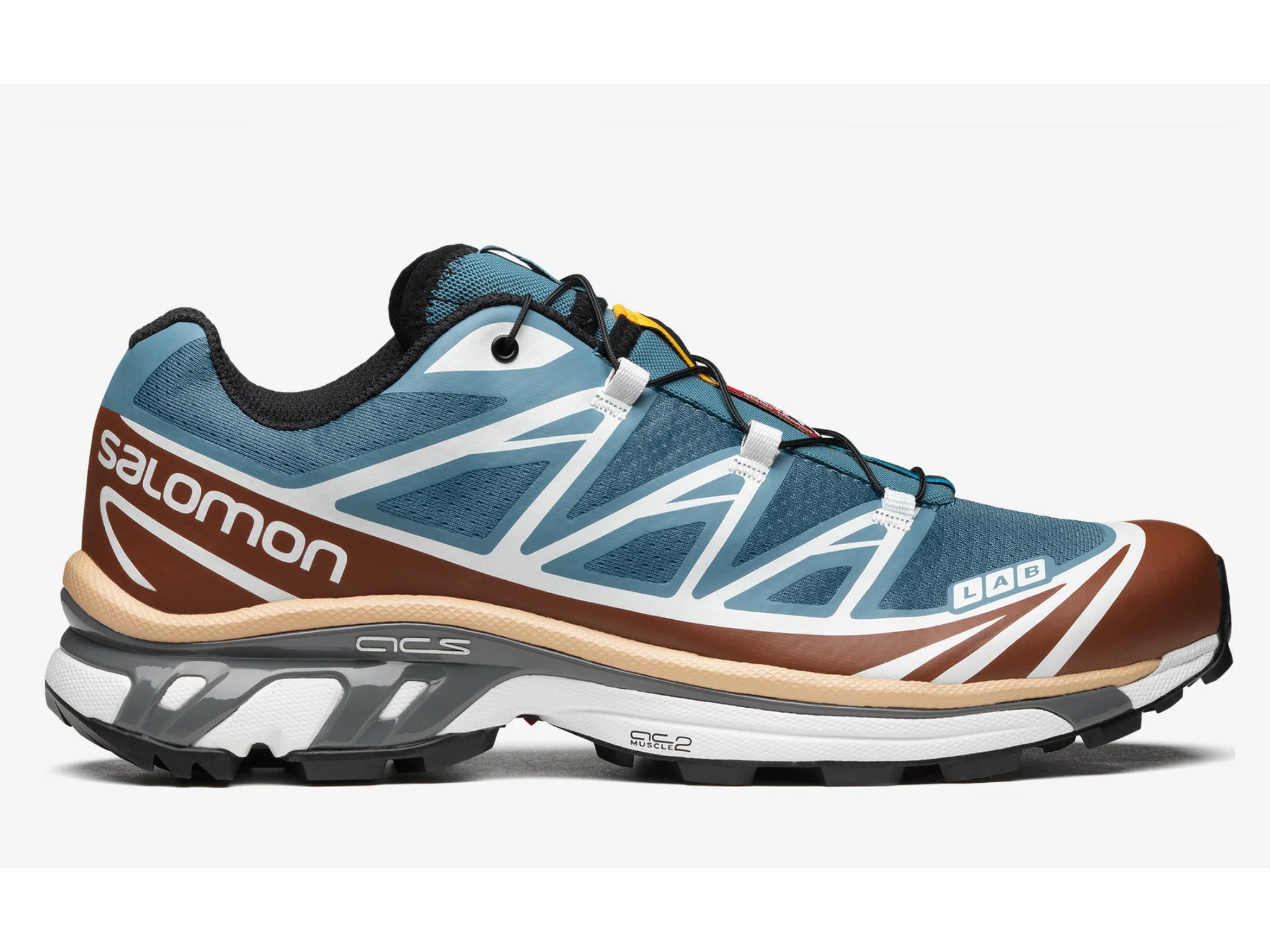
- Best: For good looks and function
- Heel-toe drop: 10mm
- Lug depth: 5.5mm
- Terrain: Mixed
- Waterproof: No
- Why we love it
- Great-looking shoe
- Comfortable
- Take note
- Bigger fit
Trail runners were designed for athletes, but more recently they’ve been hijacked by the fashion crowd. The shoe at the centre of this trend is Salomon’s XT-6 – a flagship model from over a decade ago that was resurrected as a lifestyle sneaker in the late 2010s. It’s a great-looking shoe that works perfectly as an everyday sneaker, but it still has everything going on under the hood to make it a functional trail runner too.
Granted, it’s a decade old, so there are certainly more technologically advanced trail running shoes on the market today. But for those who like the outdoorsy aesthetic, these make for an attractive alternative to a boring old pair of Vans or Converse.
Comfort-wise, they’re fantastic, although a change in production seems to have made recent versions fit a little bigger than they used to. For this reason, we’d recommend going down a half size.
Saucony endorphin edge
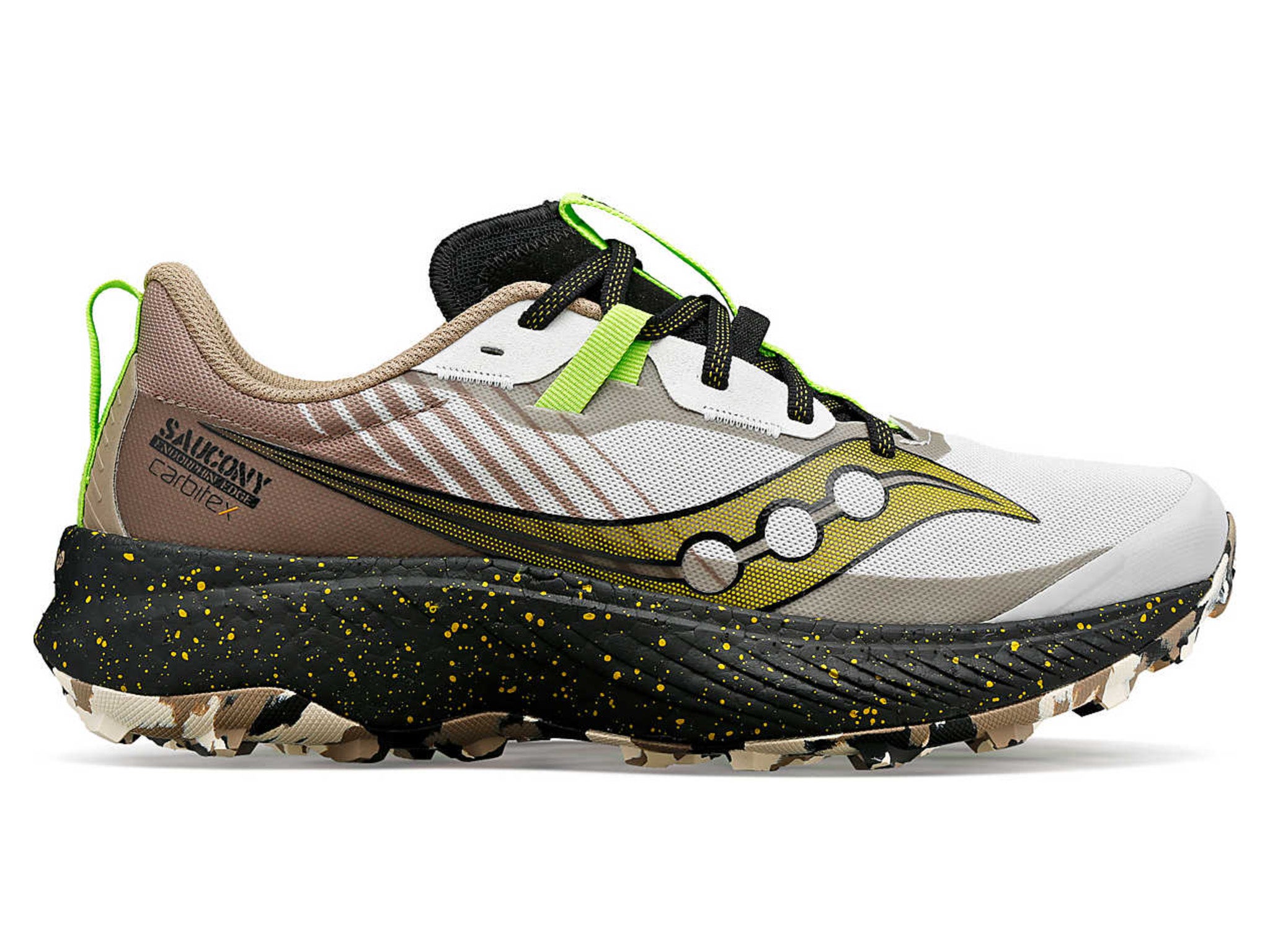
- Best: Carbon-plated shoes
- Heel-toe drop: 6mm
- Lug depth: 4mm
- Terrain: Moderate, hardpack
- Waterproof: No
- Why we love it
- Grippy
- Responsive sole
- Take note
- Expensive
- Not the most cushioned
This grippy, responsive trail shoe from Saucony is built for going fast on hard-packed surfaces and moderate trails. The outsole is extremely durable, which makes it great as a door-to-trail shoe that has to pound the occasional paved surface, and it provides excellent traction on all but the most technical and muddiest of terrain.
It’s not a cheap shoe, but that’s largely due to the fact that it features a carbon plate. This gives the shoe a quick push-off and helps the foot to land stably on uneven terrain.
If you’re after a super-cushioned ride for your next ultra, this probably isn’t the shoe for you, as it can feel a tad unstable at lower speeds and overly stiff for big miles. However, the endorphin edge excels on trail surfaces at the harder end of the spectrum, and even tarmac when speed is the goal, making it well suited to runners looking for a shoe for short-to-middle-distance racing, speedwork and training.
Nike pegasus trail 4 Gore-Tex
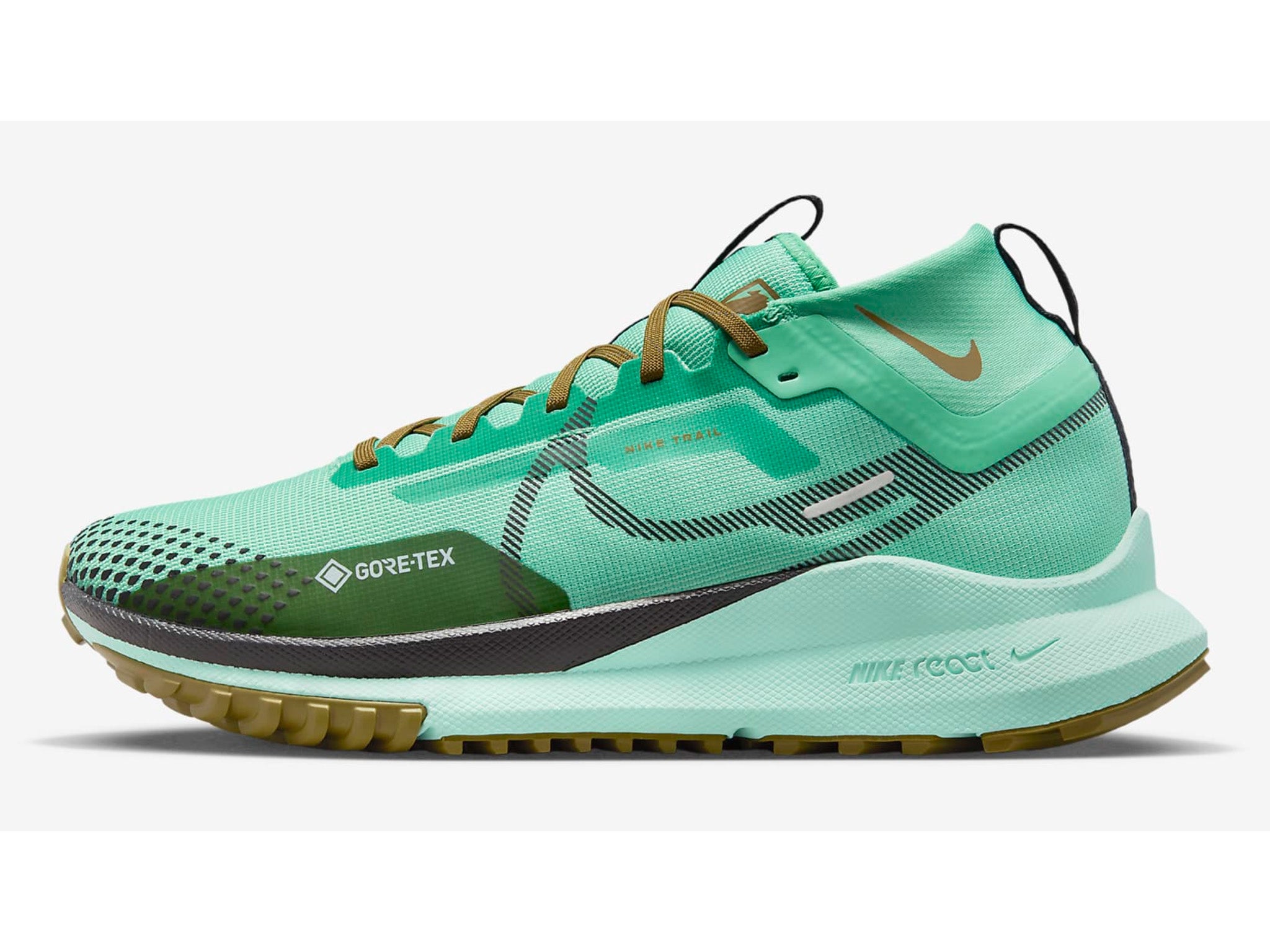
- Best: For road-to-trail running
- Heel-toe drop: 9.5mm
- Lug depth: 4mm
- Terrain: Hardpack, road, firm trails
- Waterproof: Yes
- Why we love it
- Can be worn for road and trail running
- Take note
- Not the best shoe if you are running in muddy or rocky terrain
Most people don’t have the luxury of being able to run right out of their front door onto beautiful trails. For many, reaching anything vaguely resembling nature requires some paved surfaces to be negotiated first. This poses a problem for most trail running shoes, which often feature pointy lugs on the soles. Hard surfaces can wear these down quickly, leaving shoes gripless and slippy on the terrain they’re designed for.
For urban dwellers, a shoe like the Nike pegasus trail 4 Gore-Tex is a winner, because it’s equally at home on the road or in the woods. It’s not great at handling anything too technical, rocky or muddy, but for venturing off paved surfaces to beat the crowds, it’s perfect.
It also features a Gore-Tex construction, and while water can still creep over the collar, the extra warmth the fabric provides will be ideal for runners who suffer from cold feet in the winter months.
Men’s trail running shoes FAQs
Is it OK to use trail running shoes on the road?
Trail running shoes are, of course, designed for off-road terrain, but they’re still pretty adaptable. Although they may not always be 100 per cent necessary for every run, you can, on the whole, use them on pavements and roads, too. If you’re looking for a shoe you can wear on the road and in the woods, opt for the Nike pegasus trail 4 Gore-Tex.
What’s the difference between trail running shoes and walking shoes?
While both offer a good level of protection and support, there are a few differences to consider. Trail shoes tend to be more lightweight and breathable, while they also prioritise comfort and are more likely to fit comfortably from the first wear. That said, given that walking shoes are slightly heavier and more robust, they’re more suitable for cold, wet weather, and are likely to last longer than the more nimble, lightweight trail shoe.
Are trail running shoes necessary?
You may already have a pair of running shoes, but if you’re planning on tackling tougher terrains with steep inclines, mud, rain and sharp surfaces underfoot, you’ll want shoes that are purpose-built. Trail shoes provide better traction than regular running does, with sticky rubber soles and deep gripping pads – great for navigating slippery mud and rocks. This will come in handy when whipping round those tight corners at speed.
Many trail shoes will also provide ample protection against uneven, jagged running surfaces, thanks to a thin layer of plastic or fibre fitted inside the midsole, while extra space for your toes to spread is also a plus. And, of course, thanks to their durability, trail shoes will outlast regular running shoes.
The verdict: Men’s trail running shoes
The perfect trail shoe for you depends on the terrain you run on. If you need something that can cope with the occasional paved surface, Nike’s pegasus trail 4 Gore-Tex is hard to beat. But, for muddy and rocky ground, the new Salomon thundercross is a fantastic option that’s cushioned enough to handle serious distances.
Looking to add a running bag to your kit? Check out our round-up of the best running backpacks
Voucher Codes







